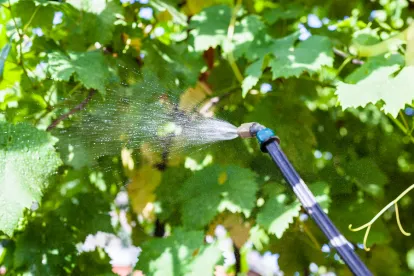On May 24, 2017, the U.S. House of Representatives passed H.R. 953, the Reducing Regulatory Burdens Act of 2017, by 256-165 vote. H.R. 953, which is similar to bills introduced in the past three congresses, would overturn a 2009 U.S. Court of Appeals for the Sixth Circuit decision requiring Clean Water Act (CWA) National Pollutant Discharge Elimination System (NPDES) permits for pesticide spraying activities into, over, or near waters. The legislation would eliminate NPDES permitting for pesticide spraying that complies with the Federal Insecticide, Fungicide, and Rodenticide Act (FIFRA).
Proponents of the legislation assert that the addition of CWA regulation is duplicative, burdensome, and costly for industry without resulting in any additional environmental benefits. Opponents argue that the bill would strip clean water protections for waters already listed as impaired for pesticides. Championed by Representative Bob Gibbs (R-OH), the recent vote received significant bipartisan support, with twenty-five Democrats voting in support of the bill. Senators Claire McCaskill (D-MO) and Mike Crapo (R-ID) introduced companion legislation in the Senate (S. 340), which currently awaits action by the Committee on Environment and Public Works. The prospects for a Senate vote are mixed in light of the number of confirmations in the queue for political appointees, as well as big ticket legislative priorities, such as health care and tax reform. If legislation is enacted, it would only apply to the four states (Idaho, New Hampshire, New Mexico, and Massachusetts), tribal lands, and other federally managed areas that are governed by the federal NPDES permit. Forty-six states administer state versions of pesticide permits. Mmany states would be expected to phase out permitting if the federal requirement is eliminated, however.


 />i
/>i
